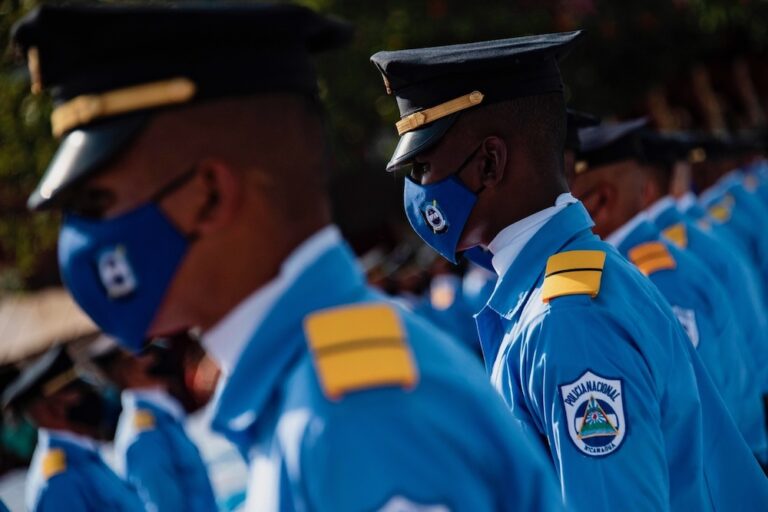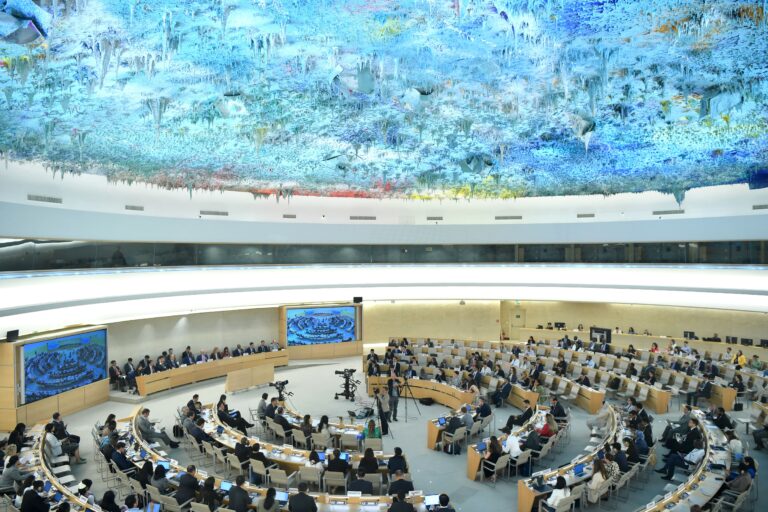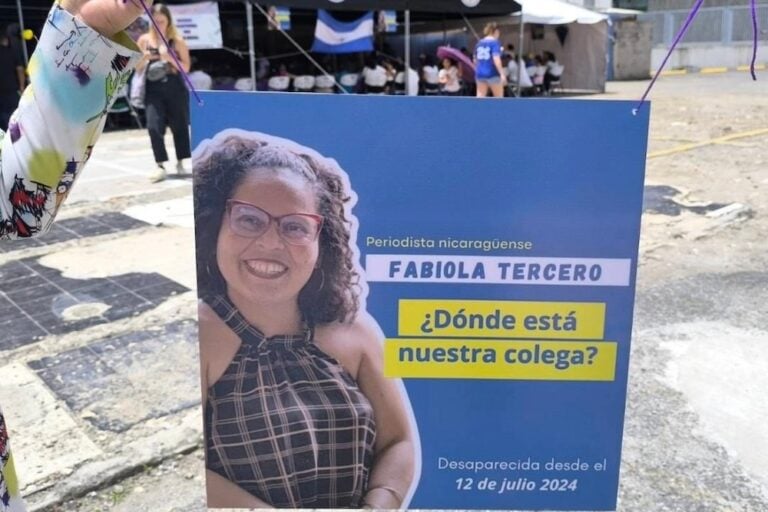(IAPA/IFEX) – The following is a 22 May 2007 IAPA press release: Caucus leaders sign Chapultepec Declaration, express their commitment to improve new access to public information law Miami, 22 May 2007 – This afternoon, on 22 May 2007, leaders from all the parties’ caucuses in Nicaragua’s National Assembly signed the Chapultepec Declaration during the […]
(IAPA/IFEX) – The following is a 22 May 2007 IAPA press release:
Caucus leaders sign Chapultepec Declaration, express their commitment to improve new access to public information law
Miami, 22 May 2007 – This afternoon, on 22 May 2007, leaders from all the parties’ caucuses in Nicaragua’s National Assembly signed the Chapultepec Declaration during the Legislative Conference on Press Freedom in Nicaragua, in which national political leaders, representatives of social organizations, journalists, lawyers and authorities from IAPA participated. The occasion was the first public dialogue among caucus leaders after the 16 May approval of the Access to Public Information Law (Ley de Acceso a la Información Pública).
The event, organised by IAPA, began with a presentation by Armando Gonzales, of Costa Rica’s “La Nación”, on Central American experiences regarding press freedom legislation. This was followed by a lively debate about the little-known dangers to the press, between Jaime Chamorro of “La Prensa”, Sofía Montenegro of the Centre for Communications Research (Centro de Investigaciones para la Comunicación), consultant Arturo Wallace, and national assembly representatives Martha Marina Gonzales of the Frente Sandinista para la Liberación Nacional (FSLN) and Francisco Aguirre Sacasa of the Partido Liberal Constitutionalista (PLC) party. The participants exchanged opposing view on different factors undermining free expression in Nicaragua, the role played by journalists and media outlets in democratic societies, and various incidents and actions that, according to some, are endangering press freedom in the country’s current context.
Two panel discussions were then held, one on the access to information law and the elements fundamental for the consolidation of freedom of expression, and a second on decriminalization of insult. The majority of the participants in the second supported an examination of Article 46 of the recently-approved access to information law and the elimination of criminal code articles that still stipulate that insult and calumny are crimes.
In the afternoon, a debate was held between National Assembly representatives Edwin Castro (FSLN), Alejandro Bolaños (PC), Víctor Hugo Tinoco (MRS), Pedro Joaquín Chamorro (ALN) and José Pallais (PLC) on the challenges involved in the implementation of the new access to information law. The gathering was without precedent in terms of its political diversity. They indicated their willingness to seek legislative mechanisms to facilitate the prompt interpretation of the legislation and its translation into concrete regulations, with the aim of providing citizens the most thorough understanding possible of how to exercise this fundamental right. The representatives also expressed support for decriminalization of insult and other offences currently still considered crimes – that is to say, punishable by incarceration – under the country’s criminal code.
González recognized that the new law is a positive step. However, although it is very broad in terms of the subjects on which it guarantees access to information to, it is at the same time very broad in its restrictions, he warned. As well, he argued that the law is incompatible with decisions by the Inter-American Court of Human Rights, specifically Advisory Opinion OC-5/85, which indicates that terms such as “objectivity” and “veracity” in legislation by their very nature restrict freedom of expression.
The event closed with the above-mentioned National Assembly representatives of all of the caucuses signed the 10 principles of the Chapultepec Declaration, which set the standards for freedom of expression in the Americas and have been signed by 52 heads of state, including the current Nicaraguan president, Daniel Ortega Saavedra.


